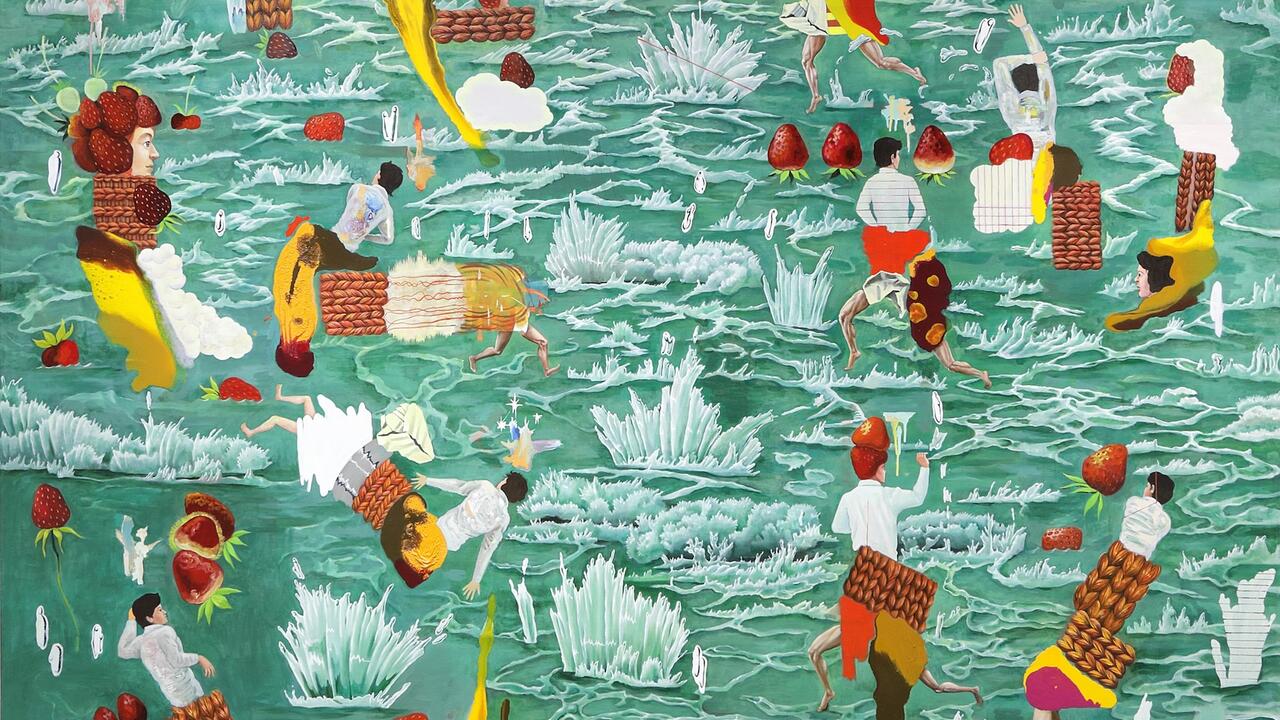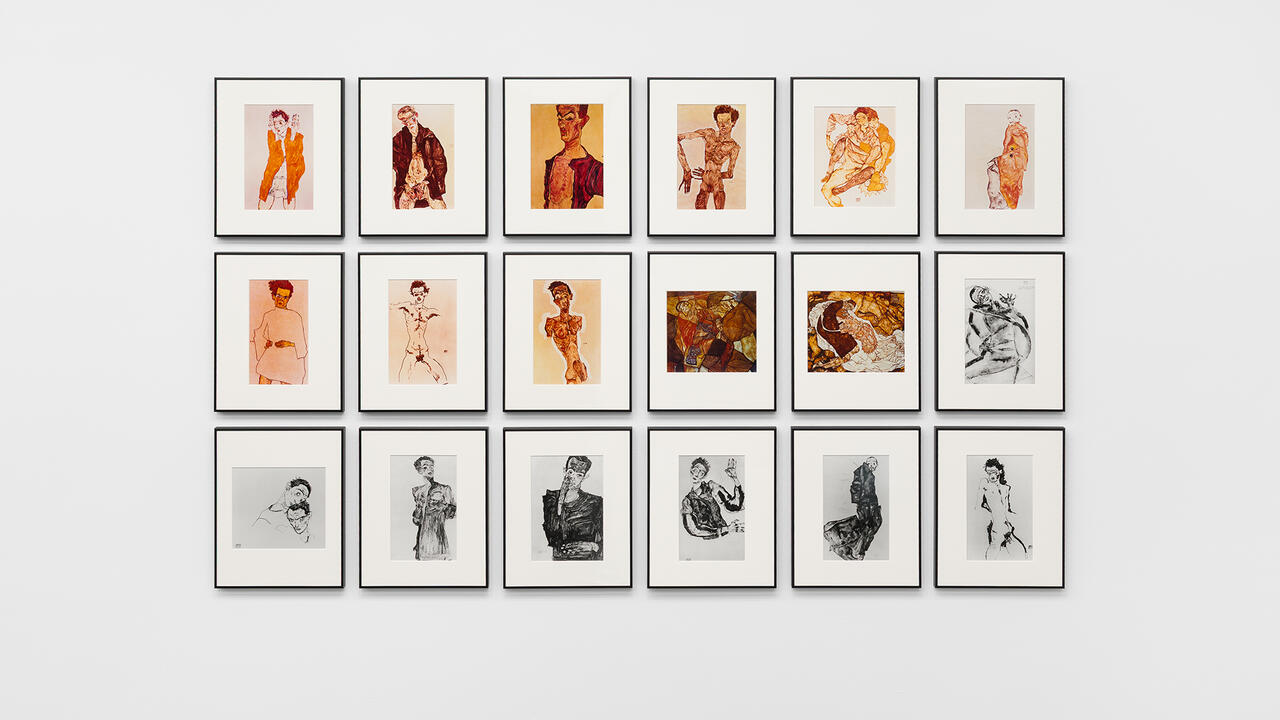Edwin David
There's something about a dark and vacant bar that's immediately and emphatically sad. The same could be said for Nico, especially when she sang those lovely monotone laments about a future she always risked annihilating after the first song break. Walking out of a wet afternoon and through the glitter curtains into Edwin David's installation of a deserted, late-night drinking spot, All Tomorrow's Parties, was initially a relief. At the far side of the room, a low-tech video monitor was playing some good looking footage of Nico, the woman described by Warhol as 'an IBM computer with a Garbo accent'. Three round, chairless tables filled the centre of the space and the bottles behind the long bar at the far end of the room were empty. Above the bar, a large mirror was strategically placed to reflect your isolated status back on yourself, and limp red curtains lined the far wall. Traces of ripped wallpaper clung bravely to the other. Everyone had left. After a few moments, it became evident that even Nico had left - it wasn't actually her on the video but her simulacrum performed by the badly lip-synching David in drag miming six different versions of the elegiac Velvet Underground classic All Tomorrow's Parties. As the tawdry, fractured light of a humble disco ball sadly rotated, relief at escaping the rain began to evaporate. A bar that's not a bar, a singer who doesn't sing, a woman who's really a man. As George Kubler said 'human desires in every present instant are torn between the replica and the invention...'
The bar has functioned as a motif for artists since at least the 17th century, usually signifying either social confusion or the imminent loss of virtue or time. Edwin David's installation managed to touch on at least two of these themes. Picturing himself as the appealing but doomed Nico, his own personality both deferred to and defined the limits of assumption and parody. And Nico, the sensual, sexually ambivalent automaton who so often seemed a parody of herself, is the perfect vehicle for drag. She has (it's impossible to talk about her in the past) the ambiguous looks of someone who is both uniquely herself yet dreamily generic - blonde, statuesque, androgynous and yet the expression in her eyes is so blank and the tone of her voice is so hollow that you could imagine filling her up with whatever desires or expectations you wanted her to fulfil. In this installation that's precisely what the artist has done, putting her on as if she herself had become one of the elaborate outfits she sang about. Assume the face and don the dress to simulate the state of mind (which is ultimately inscrutable).
Nico's death has added an eerie quality of prophetic self-fulfilment to the song and the emphasis her voice gives to 'tomorrow' (which, of course, never comes) lends her glumness the weight of a threnody. The corny but touching tone of the words embodies the feeling of time being both elusive and inevitable: one of those thoughts that manages to be as chilling and confused as it is clichéd. This is when pop music works - on paper the words might look dumb, but from the mouth of an enigma they become transcendent.
The thing about being sad is that it makes you thoughtful, and as such, can be an effective art tool. In All Tomorrow's Parties the sadness of the song and the confusion of its delivery emotively provoke a melancholy exploration of (amongst the more obvious themes of death and time) the slippage between confession and representation: hallmarks of the self-portrait. David deflects and reiterates these qualities by at once pretending to be someone else and advertising himself as the artist. The feeling of evasion is heightened in the moments of bad miming, when he obviously knows the words, but can't quite articulate them. He's disguised himself, but there's no doubt that it's him - whoever that might be - in there somewhere. And a bar - like pop music, often a repository of self-deluding, equivocal and artificially induced confidences and dreams - is a good place to situate the debate, even if it does feels more like a late-night conversation. In fact, it's the perfect site to marry those perennial bedfellows, nostalgia and anticipation, and to dress up and play with Wilde's declaration that 'only a fool doesn't judge by appearances'.

















